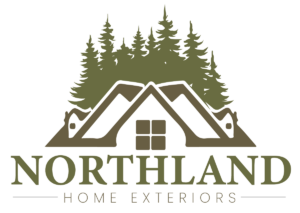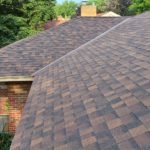If you’re in the market to purchase shingles to roof your home, your choices are likely to come down to two leading shingle manufacturers: GAF and CertainTeed.
Most general contractors and roofing contractors would prefer to work with one over the other. However, the manufacturer that suits your needs best depends on several factors. These include your budget, quality of the shingles you require, the manufacturer’s warranty, and the likelihood that you’ll sell your home in the near future.
GAF began producing asphalt shingles in 1912 and are one of the most popular shingle manufacturers in North America. GAF are known for their Timberline selection of shingles that are commonly used by roofing contractors across the country.
CertainTeed are one of GAF’s main competitors. They began producing asphalt shingles in 1904 under a different company name before adopting the name CertainTeed in 1917. Their most popular product is their Landmark line of asphalt shingles.
A cursory glance at these two manufacturers would lead you to believe they’re mostly similar. However, there are some key difference to note when choosing which is right for you.
Price
While both manufacturers feature product lines that are similar in price, CertainTeed shingles are generally considered premium quality and are priced higher than GAF shingles.
The following table compares the prices (per 100 sq feet) of each manufacturer’s shingles:
| GAF | CertainTeed | |
| 3-Tab Variety Shingles | Royal Sovereign: $62-$78 | XT25: $70-$85 |
| Mid-Grade Architectural Shingles | Timberline: $115-$125 | Landmark Premium: $128-$140 |
| High-Grade Architectural Shingles | Timberline Ultra HD: $120-$145 | Independence: $165-$180 |
| Premium-Grade Architectural Shingles | Woodland: $150-$160 | Highland Slate: $147-$165 |
Quality
The quality of shingles depends upon factors such as the amount of material used in their production, the weight of individual shingles, and the layers of coverage they provide once installed on your roof.
Materials: Both GAF and CertainTeed asphalt shingles are made from fiberglass-inforced asphalt.
Weight: GAF’s popular Timberline line weighs 240 pounds per 100 square feet, while most of CertainTeed’s asphalt shingles weigh over 250 pounds per 100 square feet. Some of CertainTeed’s higher end products weigh as much as 450 pounds per 100 square feet.
Heavier shingles contain more asphalt than lighter ones, so it’s believed they provide better protection from the elements.
Layers of Protection: GAF shingles provide 3 or 4 layers of coverage once installed, while CertainTeed shingles provide 4 or 5 layers of coverage. More layers of coverage equates to better resistance to wind, impacts, and cracking.
Manufacturer’s Warranty
Each manufacturer offers three tiers of warranty for their products. However, the warranty offered by GAF requires far more conditions to be met pertaining to installation, ventilation, and seals than the one offered by CertainTeed.
Therefore, it’s important to hire an experienced roofing contractor to install your shingles properly if you plan to go with GAF.
Do You Plan on Selling Your Home in the Near Future
If you plan on selling your home in the near future, you should consider that more expensive upgrades (such as installing pricier CertainTeed shingles) are likely to provide a poor return on investment than a moderately priced upgrade would.
Installing more affordable GAF shingles could be the smarter option if you’re likely to move.
Which Brand Is Right for Me?
The answer depends on your preference. GAF tends to be the more economical option. Both CertainTeed and GAF offer great products, and we are happy to supply both to our customers.
What truly matters is hiring the services of a good general contractor. Northland will ensure the shingles are fitted in a manner compliant with the conditions specified under the manufacturer warranty.



